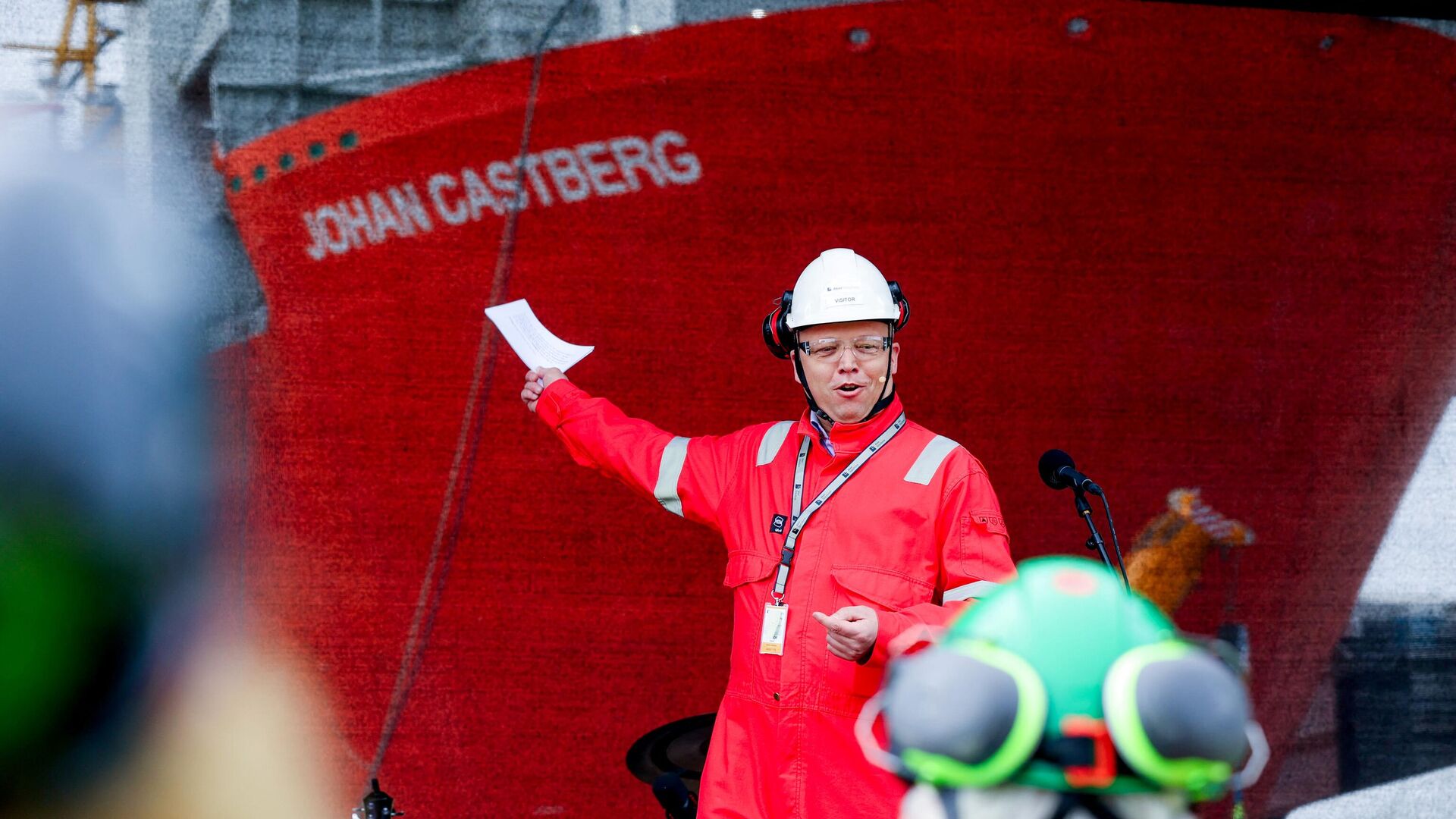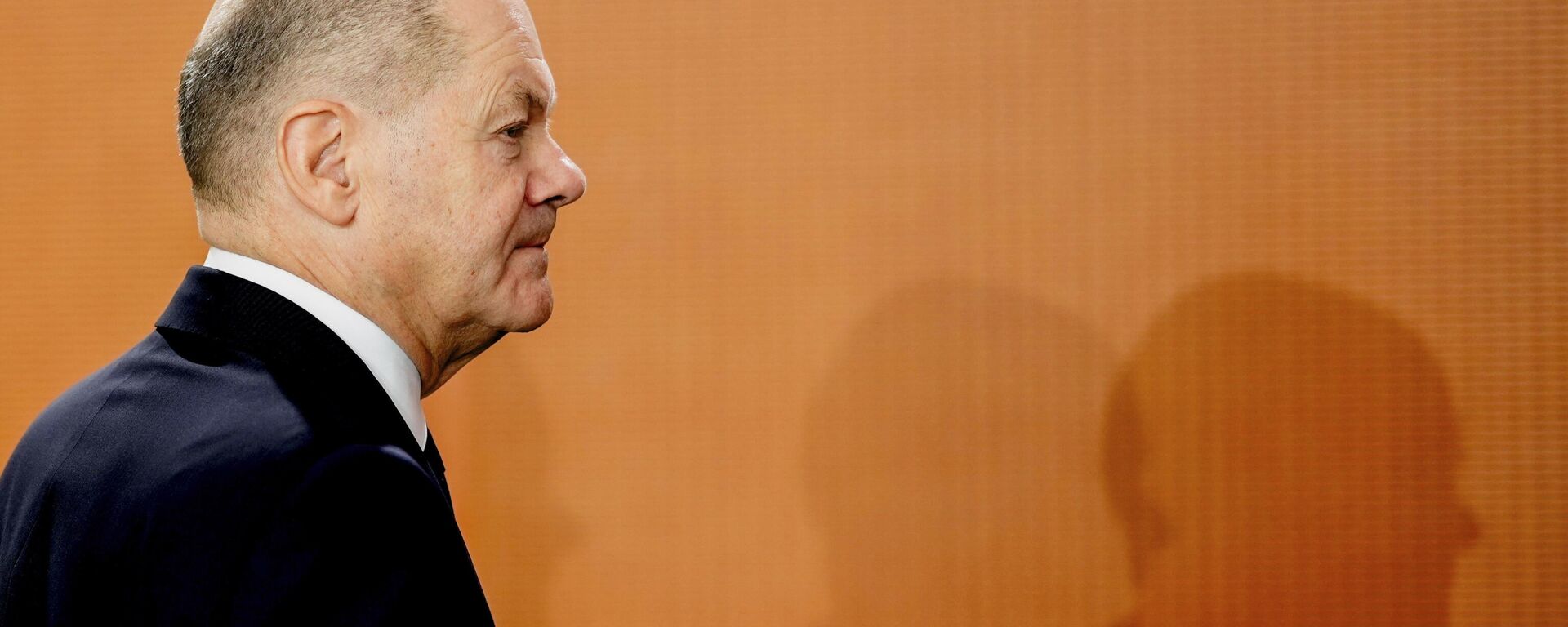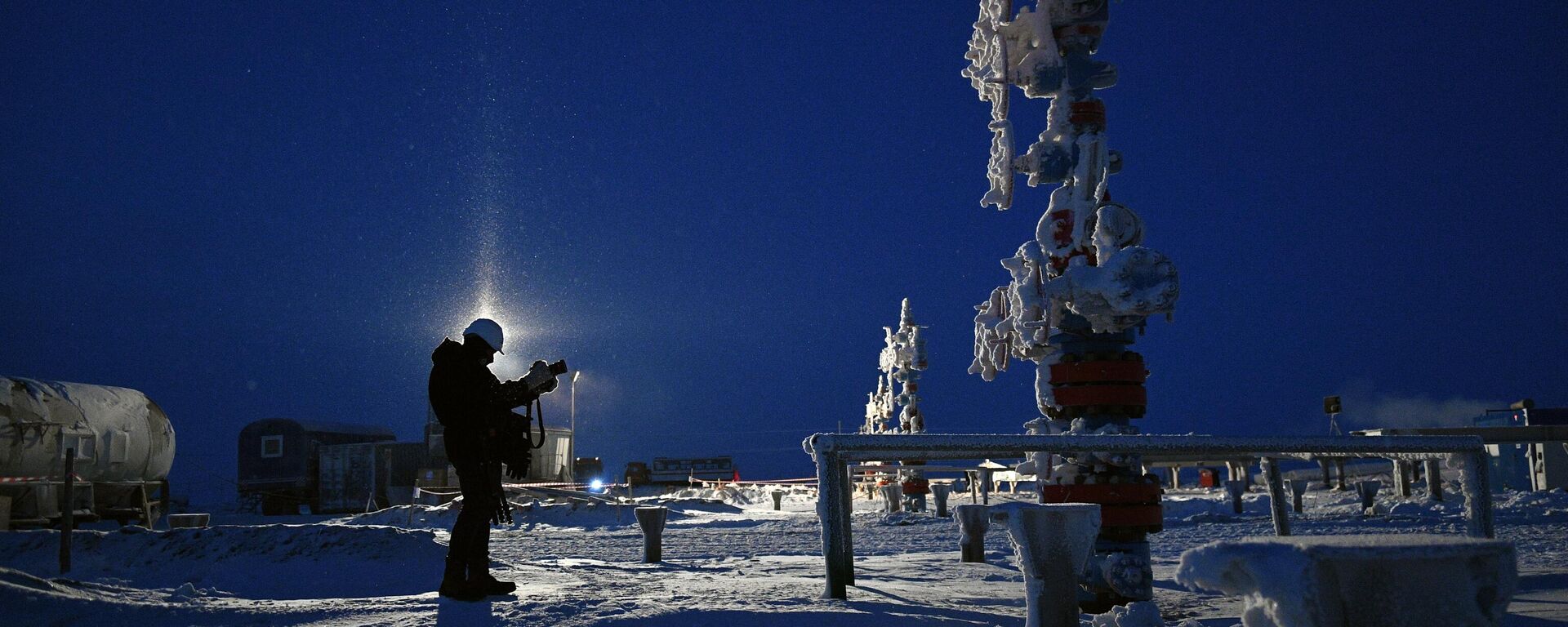https://sputnikglobe.com/20240514/why-is-us-media-softly-smearing-norway-over-eu-gas-export-bonanza-1118427222.html
Why is US Media Softly Smearing Norway Over EU Gas Export Bonanza?
Why is US Media Softly Smearing Norway Over EU Gas Export Bonanza?
Sputnik International
US business media has gently thrown America’s Norwegian allies under the bus, implying that Europe’s newfound reliance on Norway for 30% of its natural gas imports is “raising questions” about whether the bloc has once again put its energy-related eggs in one basket. That sounds like sour grapes on the US’s part, says a leading energy economist.
2024-05-14T14:40+0000
2024-05-14T14:40+0000
2024-05-14T15:51+0000
norway
russia
germany
dr mamdouh salameh
business
european union (eu)
bloomberg
equinor
liquefied natural gas (lng)
nord stream 2
https://cdn1.img.sputnikglobe.com/img/07e8/05/0e/1118427467_0:160:3073:1889_1920x0_80_0_0_5e12ffdad205e5de0dd7bdd48ce026a4.jpg
Bloomberg published a surprisingly unflattering analysis Monday regarding Norwegian energy giant Equinor’s push to corner the European gas market in the wake of the highly politicized decision to partially eject Russia’s Gazprom from the region two years ago.The hit piece, written by Bloomberg energy specialists Kari Lundgren and Priscila Azevedo Rocha, details how, over the past two years, Equinor was able to rapidly expand its share of the European Union’s gas imports from 20 percent in 2020, to 30 percent in 2024 – including two thirds of ailing EU industrial powerhouse Germany’s needs.Bloomberg suggested that Equinor’s “new prominence” in the European energy space has “raised questions about whether European leaders are, once again, putting their countries at risk by relying too heavily on a single supplier,” pointing to periods of “extended outages and [the company’s] handling maintenance challenges” and the “ripple effects” these issues have had on supply and prices.What’s more, citing the higher price Norway charges for its gas compared to Russia, Bloomberg pointed to “fuming” on the continent “after Russian exports shrank about Norway benefiting at Europe’s expense,” with criticisms only abating “as governments and traders accepted the new market conditions.”The New York headquartered business news agency also pulled out the ‘green’ card, claiming that Oslo’s natural gas bonanza had “cast a question mark over Norway’s green future,” with the surge in gas demand blamed for “redirecting financial resources and talent” away from ‘green’ solutions like electric vehicles “back into the oil and gas sectors.” On the macro scale, Bloomberg suggested that Norwegian gas has helped stall an EU-wide ‘green transition’.Well Laid PlansIn reality, price concerns nothing to do with it, Dr. Mamdouh Salameh, an international oil economist and a global energy expert, told Sputnik, suggesting that the issue actually at stake is Norway’s threat to push America and its overpriced LNG out of the European market.Having taken Russia partially out of the picture to make room for their own LNG exports, it’s only natural that US business circles are displeased with Norway coming in to pick up the market share left behind by Moscow, the energy economist says.“The US now sees Norway as a threat to its LNG exports to the EU as it looks first and foremost to its interests, having sabotaged both Russian Nord Stream 1 and Nord Stream 2 gas pipelines…to serve its interests,” he added.Before the escalation in Ukraine, Russian energy officials estimated that US LNG supplies were between 40-50 percent more expensive than Russian pipeline gas deliveries.The Ukrainian crisis has allowed American suppliers to make a killing on the dearth of Russian supplies. A Sputnik review of Eurostat data in January uncovered that EU bloc countries had to pay some €185 billion extra ($200 billion) on natural gas after unilaterally cutting themselves off from Russian supplies – spending €304 billion ($329 billion) on imports between early 2022 and late 2023.Russian officials warned in the spring of 2022 that the EU’s decision to wean itself off Russian energy supplies would result in a potentially irreversible loss in the bloc’s economic competiveness. With much of the Eurozone flirting with recession, and hundreds of manufacturers relocating their production capacity to foreign countries, these warnings have become a reality.
https://sputnikglobe.com/20240422/germanys-scholz-thanks-norway-for-providing-gas-to-country-after-cutting-ties-with-russia-1118048339.html
https://sputnikglobe.com/20240404/russia-discovered-222-oil-gas-fields-on-its-territory-over-last-5-years---federal-agency-1117735670.html
https://sputnikglobe.com/20240430/german-inflation-surges-as-backlash-from-flawed-sanctions-policies-drives-energy-costs---1118187311.html
norway
russia
germany
Sputnik International
feedback@sputniknews.com
+74956456601
MIA „Rossiya Segodnya“
2024
News
en_EN
Sputnik International
feedback@sputniknews.com
+74956456601
MIA „Rossiya Segodnya“
Sputnik International
feedback@sputniknews.com
+74956456601
MIA „Rossiya Segodnya“
are us and norway allies, do us and europe have different interests in european energy market
are us and norway allies, do us and europe have different interests in european energy market
Why is US Media Softly Smearing Norway Over EU Gas Export Bonanza?
14:40 GMT 14.05.2024 (Updated: 15:51 GMT 14.05.2024) US business media has gently thrown America’s Norwegian allies under the bus, implying that Europe’s newfound reliance on Norway for 30% of its natural gas imports is “raising questions” about whether the bloc has once again put its energy-related eggs in one basket. That sounds like sour grapes on the US’s part, says a leading energy economist.
Bloomberg published a
surprisingly unflattering analysis Monday regarding Norwegian energy giant Equinor’s push to corner the European gas market in the wake of the highly politicized decision to partially eject Russia’s Gazprom from the region two years ago.
The hit piece, written by Bloomberg energy specialists Kari Lundgren and Priscila Azevedo Rocha, details how, over the past two years, Equinor was able to rapidly expand its share of the European Union’s gas imports from 20 percent in 2020, to 30 percent in 2024 – including two thirds of ailing EU industrial powerhouse Germany’s needs.
Bloomberg suggested that Equinor’s “new prominence” in the European energy space has “raised questions about whether European leaders are, once again, putting their countries at risk by relying too heavily on a single supplier,” pointing to periods of “extended outages and [the company’s] handling maintenance challenges” and the “ripple effects” these issues have had on supply and prices.
What’s more, citing the higher price Norway charges for its gas compared to Russia, Bloomberg pointed to “fuming” on the continent “after Russian exports shrank about Norway benefiting at Europe’s expense,” with criticisms only abating “as governments and traders accepted the new market conditions.”
The New York headquartered business news agency also pulled out the ‘green’ card, claiming that Oslo’s natural gas bonanza had “cast a question mark over Norway’s green future,” with the surge in gas demand blamed for “redirecting financial resources and talent” away from ‘green’ solutions like electric vehicles “back into the oil and gas sectors.” On the macro scale, Bloomberg suggested that Norwegian gas has helped stall an EU-wide ‘green transition’.
Bank of America European energy research chief Christopher Kuplent expressed hope that as new LNG capabilities from the US and Qatar come online, “the importance of Equinor and Norway’s gas to Europe is going to eventually decline.” That, combined with difficulties Oslo will face in “organically” expanding its production, and therefore exports, should “make it, at least on paper, a little more comfortable for the European gas consumer to negotiate prices down,” he said.
In reality, price concerns nothing to do with it, Dr. Mamdouh Salameh, an international oil economist and a global energy expert, told Sputnik, suggesting that the issue actually at stake is Norway’s threat to push America and its overpriced LNG out of the European market.
“Even before the eruption of the Ukraine conflict, Norway was the second-largest gas supplier to the EU after Russia. Gazprom was the king of gas supplies to the EU, particularly the EU’s largest economy, Germany,” Salameh explained. “It is an acknowledged historical fact that Europe’s economies, particularly Germany’s, have been built since the 1970s on cheap and plentiful Russian piped gas until the United States conned and pressured the EU to impose sanctions on Russia and ban its oil and gas exports.”
Having taken Russia partially out of the picture to make room for their own LNG exports, it’s only natural that US business circles are displeased with Norway coming in to pick up the market share left behind by Moscow, the energy economist says.
“Norway’s Equinor was asked by the EU to supply more gas to Europe and it has responded well enough. This, however, doesn’t please the US – which has been hoping long before the Ukraine conflict to replace Russian gas supplies with its LNG exports, most of which have been going to the EU,” Dr. Salameh said.
“The US now sees Norway as a threat to its LNG exports to the EU as it looks first and foremost to its interests, having
sabotaged both Russian Nord Stream 1 and Nord Stream 2 gas pipelines…to serve its interests,” he added.
“Mark my words: Once the Ukraine conflict is eventually resolved on President Putin’s terms, Germany and most of the EU countries will resume importing the cheap Russian piped gas to end the financial bleeding resulting from importing the US LNG which has crippled their economy,” Dr. Salameh summed up.
Before the escalation in Ukraine, Russian energy officials estimated that US LNG supplies were between
40-
50 percent more expensive than Russian pipeline gas deliveries.
The Ukrainian crisis has allowed American suppliers to make a killing on the dearth of Russian supplies. A Sputnik review of Eurostat data in January uncovered that EU bloc countries had to pay some
€185 billion extra ($200 billion) on natural gas after
unilaterally cutting themselves off from Russian supplies – spending €304 billion ($329 billion) on imports between early 2022 and late 2023.
Russian officials warned in the spring of 2022 that the EU’s decision to wean itself off Russian energy supplies would result in a potentially irreversible loss in the bloc’s economic competiveness. With much of the Eurozone flirting with recession, and hundreds of manufacturers relocating their production capacity to foreign countries, these warnings have become a reality.





